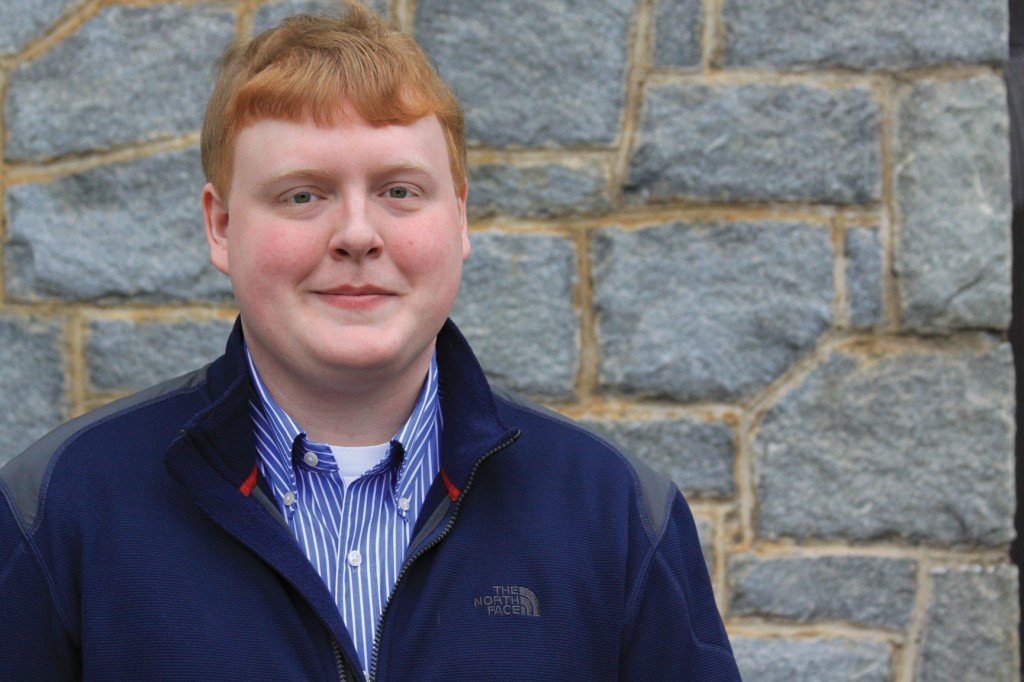My dad often used the phrase “college teaches you how to learn.” I don’t know where he got it from, or if it was his own invention. All I know is that it made no sense in high school. I would question it because it essentially made college useless. Every high school kid knows how to learn, right? No, absolutely not. All of them think they do; I was no different.
I came to Oglethorpe thinking I had it all figured out: career, dreams, and how to reach both of them. I was going to be a hugely successful sports/entertainment attorney. I was going to make tons and tons of money. I was going to have it all. From Oglethorpe, I learned none of that was what I wanted. I don’t care about money that much, I don’t care about having a hugely successful name that strikes fear in the hearts of sports franchises and movie producers. I just want to learn.
Oglethorpe has been designed in such a way that questioning your self is unavoidable. Just look at the first year of Core. “Narratives of Self”?What else could that be other than an examination of your being and values? Just when you think you figured out the problems from that course, you have “Human Nature and the Social Order”. Another puzzle for yourself that you must answer: what values do you hold, where do you stand in society, and what do you want from society? After this, you’re thrown another curveball, being forced to reexamine these practices and decisions in “Historical Perspectives.”
All of this, hopefully, allows you to look at yourself and question the pit of your beliefs. Maybe you have to find new ones, maybe the ones you held before Oglethorpe are reinforced; either way, you’re a better person for it. You have gained a system of beliefs that you hold concretely, and there are very few things more comforting than knowing you stand for beliefs that have been stripped down to their very core, and you found them agreeable.
Perhaps this type of examination of Oglethorpe only exists in the mind of a philosophy major. Perhaps I examined this the way I did because of the professors that I have. Dr. Belcher showed me that your beliefs are basically worthless if you don’t know why you stand for them. Dr. Carton taught me that nobody is the same, and there are so many different internal processes that make up a person that understanding them all is impossible. From Dr. Smith I learned everybody does things their own way. We don’t know why some things are done the way they are, but the fact that they are done in such a way might tell us more about that person or those people than if they had done it the “normal” way. Numerous other professors here taught me other things, but these are the ones I hold in the highest regard.
The most important thing to notice about the things I learned is that none of them are classes. I didn’t take a “reasons why your beliefs might be wrong class” or a class on “things that people did in history that we don’t understand” because they don’t exist. Sometimes, the most important thing to learn from a class isn’t the subject of the class at all. This takes some work, but the work and payoff will be well worth it. Your experience will undoubtedly be different. You will have different classes, different professors, and different friends. This difference will make you examine things in your own way, and that leads to a different experience for everybody. This means Oglethorpe has done its job.
In hindsight, I want to leave the readers of this with a few suggestions. First, don’t live your life thinking you know what you want because that is what your parents want for you, or because you saw it on TV. If you really want to be this idea you have in your head, no amount of reexamining will change your mind. If you end up changing your mind, it means you’re growing, learning. Have an open mind, it will do wonders for you. Second, take Oglethorpe for what it is. The classes can be frustrating and, believe me, I hate Petrel Points* as much as the next guy, but I love Oglethorpe. The community, professors, faculty, and students will always hold a special place in my heart. If you come here expecting perks of a large university, don’t expect to be satisfied. Take the small school atmosphere and embrace it. Develop relationships with your professors; and gain close friends; you won’t regret it. The third suggestion is to just listen to people. You can’t learn if you don’t. Listen to professors; they are wildly intelligent and are here only because of the students. They honestly have your best interests at heart. If they suggest you think about something or reexamine something, do it. They care and know best.
And above all else, just learn.
*All first-year students are required to accrue a total of 12 Petrel Points during their first academic year by participating in three areas of campus life: arts, education and ideas; civic engagement; and campus leadership and citizenship.
Printed in the Stormy Petrel student newspaper, Dec. 1, 2011, and reprinted in the Carillon magazine, Winter 2011.

